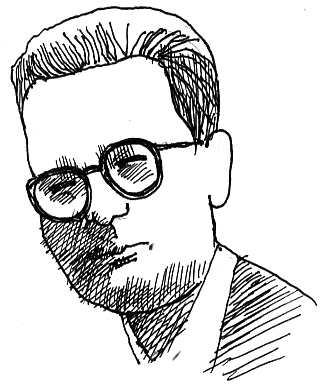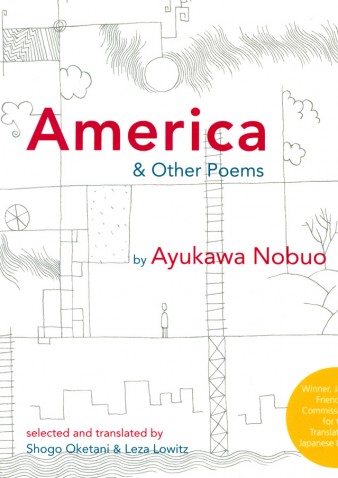Nobuo Ayukawa
Nobuo Ayukawa was born in Tokyo in 1920 and is considered the “pilot” of modern Japanese poetry. He was one of the founding poets of the Arechi (Wasteland) group, and translated the work of T.S. Eliot and William Burroughs into Japanese. Ayukawa rejected traditional Japanese poetic concerns, mining his past experiences as a soldier in World War II and paying homage to his literary influences in abstract, lyrical modernist works that collaged remembered conversations among friends with literary quotations taken (and in some cases, reworked) from Mann, Eliot, Kafka, Pound and others. In addition to being a much-admired poet and translator, Ayukawa was a well-respected literary and social critic. He published over a dozen books of poetry, essays and literary criticism. He died in Tokyo in 1986.
books
America & Other Poems
America and Other Poems by Japanese modernist poet Nobuo Ayukawa marks the first time this seminal work has been translated into a single volume in English. This landmark selection spans three decades from 1947-1976, ranging from Ayukawa’s early work about his war experience on the front lines to later poems in which the influence of Western culture on Japanese society can be clearly felt. His lyrical, complex poetry offers a rare perspective on the modern Asian war experience from an ordinary soldier’s point of view, and a unique window into the complex post-war relationship between Japan and America. This award-winning translation also features an essay by Ayukawa on his seminal poem “America,” as well as essays contextualizing Ayukawa and his work by Shogo Oketani.
praise
“… His unflinching resistance to the hypocrisy of many of his fellow poets set him outside the mainstream of Japanese culture as it rebuilt itself out of the ashes of defeat.” — Hillel Wright
“You might read Nobuo to see what war did to him. You might read him because he’s a major poet whose work, still gathering force behind him, speaks directly to Americans in this dismal, blood-spattered moment of our own history.”
— Forrest Gander
“It is this voice, telling it as it is in the wilderness, that must be captured in any reading and in any translation. And this is just what the Oketani/Leza Lowitz translation does.” — Donald Richie, The Japan Times


